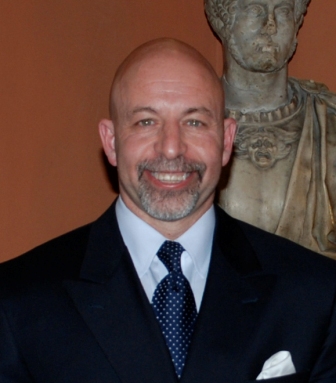 Prof. James Giordano, PhD, is Vice President for Academic Programs and Director of the Center for Neurotechnology Studies at the Potomac Institute for Policy Studies. In the latest post on his blog Neurosecurity, he writes about the ongoing debate over the application of neuroscience and neurotechnology in national security, intelligence and defense (NSID). Prof. Giordano notes that some in the neuroscientific community have called for their colleagues to disavow any involvement in NSID. But he argues that while ethical and moral probity must be maintained, avoidance is not the answer. Prof. Giordano writes, "Thus, I call for some – but certainly not all – neuroscientists and neuroethicists to be actively involved in the discussion and debate, as informed, experienced experts at those tables where guidelines and policies are made, to work proactively to provide lenses and voices to report what neuroscience can and cannot do, and to be participatory in the formulation of directives that shape and govern the ways that neuroS/T should – and should not – be utilized." Click here to read the post in full.
Prof. James Giordano, PhD, is Vice President for Academic Programs and Director of the Center for Neurotechnology Studies at the Potomac Institute for Policy Studies. In the latest post on his blog Neurosecurity, he writes about the ongoing debate over the application of neuroscience and neurotechnology in national security, intelligence and defense (NSID). Prof. Giordano notes that some in the neuroscientific community have called for their colleagues to disavow any involvement in NSID. But he argues that while ethical and moral probity must be maintained, avoidance is not the answer. Prof. Giordano writes, "Thus, I call for some – but certainly not all – neuroscientists and neuroethicists to be actively involved in the discussion and debate, as informed, experienced experts at those tables where guidelines and policies are made, to work proactively to provide lenses and voices to report what neuroscience can and cannot do, and to be participatory in the formulation of directives that shape and govern the ways that neuroS/T should – and should not – be utilized." Click here to read the post in full.
Past Events
Neuroscience and Education Keynote
Potomac Institute for Policy Studies
AAAS
May 14, 2014
Neuroscience and Education Panel 2
Potomac Institute for Policy Studies
AAAS
May 14, 2014
Neuroscience and Education Panel 1
Potomac Institute for Policy Studies and AAAS
May 14, 2014
Ambassadors' Forum Diplomacy and Force: Rewards, Costs and Lessons
Potomac Institute for Policy Studies
May 16 2914
Israeli-Palestinian Peace Process: Endless or Endgames?
Israeli-Palestinian Peace Process: Endless or Endgames?
Potomac Institute for Policy Studies
International Center for Terrorism Studies
April 30, 2014 Hosted by the International Law Institute






